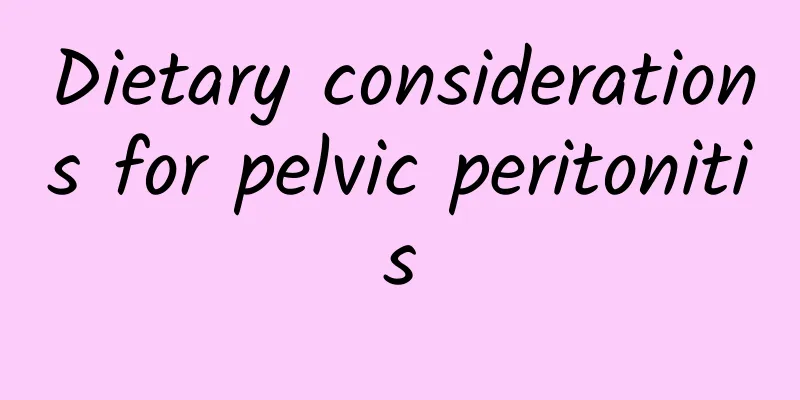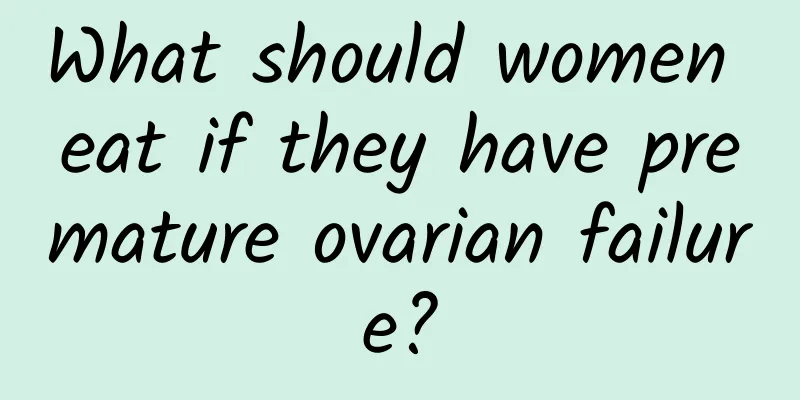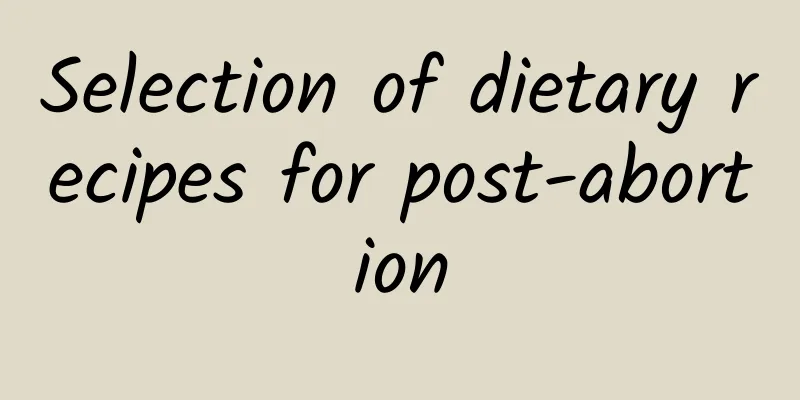Dietary considerations for pelvic peritonitis

|
It is not terrible to suffer from pelvic peritonitis. The key is to face it correctly. Many female friends are very afraid of this disease and dare not face it actively, which leads to more serious disease. In fact, there are many ways to treat pelvic peritonitis. Food therapy is a relatively effective method. Let us introduce to you from the perspective of diet. How should patients with pelvic peritonitis eat? 1. Pay attention to the dietary adjustment and care of pelvic peritonitis. People with hot flashes in the five hearts and low back pain are mostly suffering from kidney yin deficiency. The diet of pelvic peritonitis should include meat, eggs, blood and other foods. The diet of pelvic peritonitis should be nourishing and strengthening. 2. Patients should eat a nutritious diet high in protein and vitamins, including lean meat, pork liver, tofu, chicken, fruits, vegetables, etc. 3. You can eat more lean meat, chicken, eggs, crucian carp, turtle, cabbage, asparagus, celery, spinach, cucumber, winter melon, mushrooms, tofu, kelp, seaweed, fruits, etc. 4. For pain, it is advisable to eat horseshoe crab, red crab, lobster, mussels, sea cucumber, tiger fish, beet, mung bean, radish, and chicken blood. 5. Eat more fresh cooked vegetables and fruits, including mushrooms, sunflowers, asparagus, tomatoes, carrots, etc. 6. Avoid spicy foods and drinks such as chili peppers, peppercorns, raw onions, raw garlic, and white wine. 7. Avoid eating raw or cold foods such as cold drinks, fruits, etc. 8. Avoid sweet and greasy foods: Overly sweet and greasy foods such as candy, cream cake, eight-treasure rice pudding, glutinous rice cake, lard and fatty pork, mutton fat, and egg yolks. These foods can promote dampness and reduce the therapeutic effect, making the disease protracted and difficult to treat. 9. Avoid eating fatty, cold and sticky foods, such as fatty meat, crabs, snails, pickled and cured products, etc. 10. Spicy and irritating foods such as tobacco, alcohol, and strong tea should be strictly prohibited. Through the above introduction, patients with pelvic peritonitis have understood how to treat this disease from the perspective of diet. For any disease, its treatment is secondary, and the main thing is to prevent it. We should develop good living habits in our daily life, and seek medical attention in time if we find that we are unwell. |
<<: What should I pay attention to in my diet for pelvic peritonitis?
>>: Pelvic peritonitis diet tips
Recommend
How should women prevent endometrial thickening?
In recent years, many female friends have experie...
Experts explain the causes of ectopic pregnancy
Because patients with early ectopic pregnancy wil...
Thread embedding for weight loss People with etiological obesity need to treat the disease first
Medical disputes over Chinese medicine thread emb...
Women should pay attention to breast health after menopause
According to expert analysis, menopause has becom...
Can drinking tea help you lose weight? How to choose between Pu'er tea, black tea and green tea? Experts say
Pu'er tea for weight loss How can you lose we...
Clinical manifestations of menopausal dysfunctional uterine bleeding
After women enter menopause, their ovarian functi...
Experts teach you how to scientifically prevent chronic pelvic inflammatory disease
As a common type of pelvic inflammatory disease, ...
Can cervical erosion be transmitted to men?
Nowadays, many women suffer from gynecological di...
The Danish weight loss method does not require fasting and can help you lose 9 kg in 2 weeks! 4 Keys to Building a Slim Body
There are thousands of ways to lose weight, but t...
Expert introduction: How to completely cure chronic adnexitis
Chronic adnexitis is the most common gynecologica...
Exercise to get a six-pack and eat to stay slim and fit!
Why do some people become out of shape and look l...
Experts analyze the specific causes of uterine adnexitis
Adnexitis is a gynecological disease caused by ma...
How to diagnose congenital absence of vagina?
How to diagnose congenital absence of vagina? Thi...
Why should I check for uterine fibroids during pregnancy? Why would I find uterine fibroids during pregnancy?
Why should I check for uterine fibroids during pr...
Can pelvic inflammatory disease cause delayed menstruation?
Can pelvic inflammatory disease cause delayed men...









